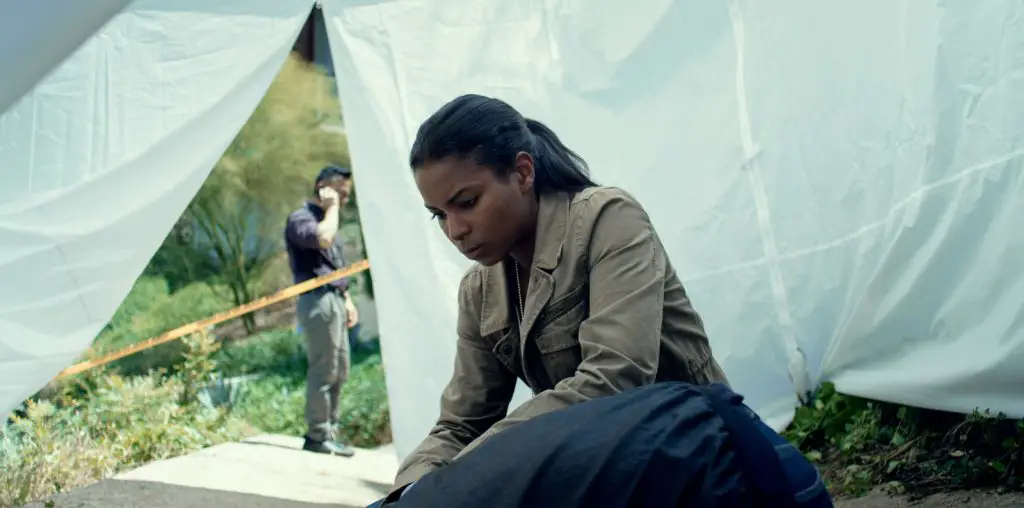
Jamie Foxx’s lead performance, a model of subtlety and strength, redeems “Redemption,” and makes good on his dramatic turns in “Any Given Sunday” and “Ali.” In this otherwise fairly generic F/X cable TV movie, Foxx plays Stanley “Tookie” Williams, the real-life co-founder of L.A.’s infamous Crips gang. Williams has been on San Quentin’s death row since 1981, when he was convicted of four counts of murder for a brutal multiple shooting. He is also, however, maybe the only person on earth who has been nominated for both the Nobel Peace Prize and the Nobel Prize for literature. This movie might never have been made otherwise, but Williams’ tireless efforts to steer kids away from the gang life would still be as worthy.
Lynn Whitfield plays Barbara Becnel, an author of historical books who – possibly due to her teenage son’s attraction to the thug life, though this aspect of the story is underdeveloped – wants to put her career on hold and investigate how the entire Los Angeles gang nightmare got started. Against the advice of her agent, she fights her way into Williams’ hellish prison world. The story traces his gradual evolution from running his wing at San Quentin like the gangster king he used to be…to the controversial beacon of hope he has become.
Director Vondie Curtis Hall shows skill in threading flashbacks of Williams’ awful childhood in Louisiana – where he was made to fight with other neighborhood boys for sport – through his gangsta glory in the ’70s as King of the Crips. Hall is constrained a bit by the tight, TV-mandated 90-minute running time (though it’s a big improvement over his last gig, “Glitter”). However, the narrative gains steam when Williams, tossed into solitary, is inspired by an older lifer to “make some windows” in his tiny cell. Reading, writing and drawing end up saving Tookie’s sanity and probably his life.
It’s in Tookie and Barbara’s snappy face-to-face debates that “Redemption” really comes alive, and Whitfield matches Foxx in power. He answers her first question – Why did he start the Crips? – with a simple, “To protect my neighborhood.” But, he adds ruefully, “Things changed once they started shooting.”
Foxx, in several compelling monologues, brilliantly articulates the pervasive poverty-bred hatred and hopelessness behind the gang mentality. This attempt to get inside the heads of young gangbangers is also the thrust of Williams’ series of childrens’ books, whose acclaim has probably kept him out of the death chamber, even earning him a visit from Winnie Mandela.
The gangbanger mentality often comes down to simple, bullheaded tribalism: I’m on this side of the block, you’re on that side; I wear red, you wear blue; You hate me, I hate you…so, since we have nothing else to live for, let’s spend our miserable lives fighting each other to the death – and teach our sons and their sons to do the same. And given the fact that, as the New York Times recently reported, L.A. gang violence has shot up 50% in the last three years, the message here is more relevant than ever. More conventional than provocative, “Redemption” may not succeed as great drama, but its point couldn’t be more well taken. Hopefully, though it will require a lot more than wishing, Williams’ wish “to stop this madness I created” will one day come true.
